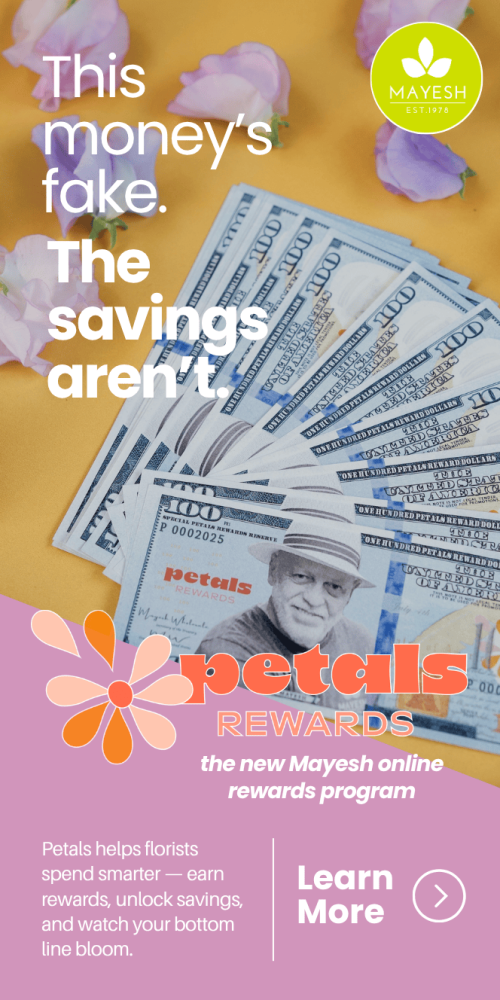
Is It Better To Give Than Receive?
Tips for creating an authentic charitable marketing plan.
By Jennifer Howard
Are you a giver? Most people are givers, but how about your business? Do you have a plan when someone asks for a donation, or do you shoot from the hip? Charitable marketing is the feel good side of public relations that can be gratifying for you personally and helpful for your business’ visibility.
Consumers increasingly vote with their wallets and choose companies that demonstrate their brand values. Eighty-three percent of consumers say that charitable giving improves their image of a company. And 80 percent would switch brands because of a business’s charitable connection. That’s powerful motivation to do charitable giving right—and for the right reasons.
It’s essential that giving be authentic and genuine. But it should also be more than a check cashed behind the scenes. Charitable marketing is about partnering with causes that align with your brand values and communicating those values to your customers. Don’t miss this step! It’s powerful to invite customers into your giving story. Some of the deepest bonds may come from this work.
Giving, of course, should come from the heart. And with all the great causes out there, it’s hard not to find one that speaks to you. There are myriad ways to give back from your business, some with greater costs and impact than others. Choosing the right one for you depends on the cause, your connection and your capabilities. Here are some thought-starters on ways your business can be great at doing good.
Donation Formats
COST+
This is as simple as it gets. X dollars of a purchase goes to your chosen charity. But there are many ways to execute this. You can simply add on a dollar amount (x dollars per arrangement), create a charity-themed arrangement to sell or share x percent of a day’s revenues to your chosen charity.
The “cost +” approach prob- ably gives you the most flexibility and clarity on costs. It can be used to raise funds for local nonprofits or episodic disaster relief (like flood or tornado victims) as well as nationally recognized organizations (breast cancer research, children’s hospitals, etc.). Extending the impact of your and your customers’ donations depends on your ability to connect with the cause.
REPURPOSE EVENT FLOWERS
The historical and tragic waste of event florals has given rise to an entire army of amazing nonprofit organizations rescuing and reusing bridal and event flowers.
Many of these organizations cover everything from breakdown to distribution and end-use reporting. Some of these organizations charge a fee or request a donation to cover costs, so understand the nature of the business before committing.
PRODUCT/SERVICE DONATION
Contributing arrangements for a gala fundraising event, hosting a class for teens or grief groups, or assembling a gift basket for a silent auction are all product donations.
But be warned that costs can quickly spiral on pure donation requests. It may seem simple to contribute items on hand, but remember that there is an opportunity cost in what you donate—you can’t sell it. When agreeing to product donations, make sure the organization and event are a mission you heartily support and that you can incorporate into your customer communications. You can reduce costs and extend your contribution by inviting industry partners to join you in support.
DONATE SPACE
If you have a retail location or studio, offer your space, after business hours, to host an event(s). To draw retail traffic, allow charitable pop- ups at your location (think Girl Scout Cookies or pet adoptions). Be clear about property restrictions if you rent. And think through parking and traffic patterns, especially if adverse weather could become a factor.
This opportunity has more “soft” costs to it than a pure product donation, but also think through what impacts (positive and negative) an on-site event can have for your space, especially for liability concerns.
CREATE AN EMPLOYEE/CLIENT TEAM
Consider starting a char- itable team for a local 5K run/walk or another team event. If you’re looking for a team-building activity with employees, partners or customers, these types of events are great ways to spend time together and show your sup- port for a cause—and they are great add-ons to other types of material donations like event arrangements or product donations.
COLLECT DONATIONS
If your space is in a high-foot- traffic location, you could be- come a drop-off spot for win- ter coats, holiday toys, pet blankets, school supplies or items for a women’s shelter. It helps to have some specific context for the cause. Here is your opportunity to share a personal message about a specific group’s significance in your life. Tell the story.
Make sure to provide good in-store signage on the drop-off location and that store employees are well-versed on the intake process. Have a designated (preferably corralled) location for items, and know the pick-up schedule for the charity. Make sure the group will take all items donated so you don’t have to sort through them or dispose of leftovers.

SHARING THE STORY
When you’re doing great things for others you can’t help but want to share them. And you should! But how can you leverage your charitable involvement without feeling slimy? It comes down to intention.
First, embrace the personal satisfaction your participation brings. Gratitude is healthy and contagious. The giver truly benefits more than the recipient and often inspires others to join the charitable giving. Your communications could benefit the group much more than your donation!
Don’t be afraid to share your giving partnerships—in an inspirational way. Keep the message on the group’s impact and your connection rather than on your gift. Remember that consumers like to know who they are doing business with and what they stand for. So, plan communication around your giving.
SOCIAL MEDIA
It’s the obvious first stop on the visibility bus. Depending on the length or frequen- cy of your charitable relationship, add an Instagram highlight (and cover) specific to the group. Consider letting the organi- zation do a “Stories” takeover for a day or two during a promotional week. Use your “Stories” to engage followers with polls on products to donate or suggestions for future charitable connections.
WEBSITE
At a bare minimum, add the organiza- tion logos to your site. If you have the flexibility, add a page or blog post about your involvement. If you’re not a writer, ask a charity partner or the organization if they can write a guest post for you to share. And be sure to request backlinks from your charitable organization’s web- site to yours.
IN STORE
Post signage or drop-off spots in strategic locations for visibility. Ask if the charity can provide these to you.
LOCAL MEDIA
Add on-site or public events to your local community event calendars. Most major newspapers and local media outlets have some sort of events page, especially for family-oriented outings. Many outlets require a few weeks notice, so plan ahead. Try offering your website (if it makes sense) in addition to the charity’s for readers to find additional information.
Finally, don’t hesitate to pitch local media with your story. Local TV stations and lifestyle magazines love a feel-good story to have on hand for slow news days. Prepare a simple write-up of the event and your involvement, and send it to your local media outlets. Make sure to list yourself as a contact.
STAY SANE
With so many worthy causes, the requests will definitely add up. Once you get noticed for your generosity, groups will seek you out. Here are six suggestions for keeping the wave of requests in check.
Keep a calendar of events you can reasonably commit to (clearly not near major holidays or gigs, unless you have the bandwidth). Have a process for requests. Once you start, they will come. Consider a JotForm or Google form to standardize donation requests. Set an annual budget on what you can contribute and how much you may ask from customers. Limit the number of events, and, when possible, try to piggyback them onto scheduled paid events, in case you can personally repurpose any materials. Be clear with partners and charities on expectations. Summarize discussions and obligations by email so you have a written record.
Ask! Ask for signage, social media tags, photos, follow-up reporting and anything else that will help you promote the cause and your commitment to it. Consult with your tax advisor about de- ductibility. In many cases, it depends on how you file and what you already claim as expenses. A charity may have good in- tentions in saying that contributions are tax deductible, but they aren’t the one on the hook if the IRS comes knocking. Talk to your advisors before assuming there is a financial benefit.
Even if your donations are not a tax ad- vantage, they will still bring you great joy. Flowers are a medium for emotion. They are a fantastic product to touch, comfort and celebrate good causes. Find a group whose mission speaks to your heart. Embrace it, and find your unique way to deliver kindness. You’ll get immensely more back in return.
Related Articles
Related
Retail Forecast 2026
By Phillip M. Perry Tapped out low- and middle-income shoppers, sluggish employment and lackluster housing turnover will challenge retailers in 2026. Helping to smooth things over will be robust buying by high-income consumers, lower interest rates and...
Build a Culture of Celebration
Energize your floral design team. Here’s how. By Jules Lewis Gibson In the fast-paced world of floristry—where early mornings, last-minute requests and endless creativity are part of the job—it’s easy to focus only on getting orders out the door. But do you take...
Arranging Your Future
The exit strategy every florist needs. By Kat Castagnoli, AIFD For many florists, retirement planning isn’t just low on the priority list—it often doesn’t exist at all. Long hours, tight margins and a culture that celebrates artistry over financial strategy make it...






















